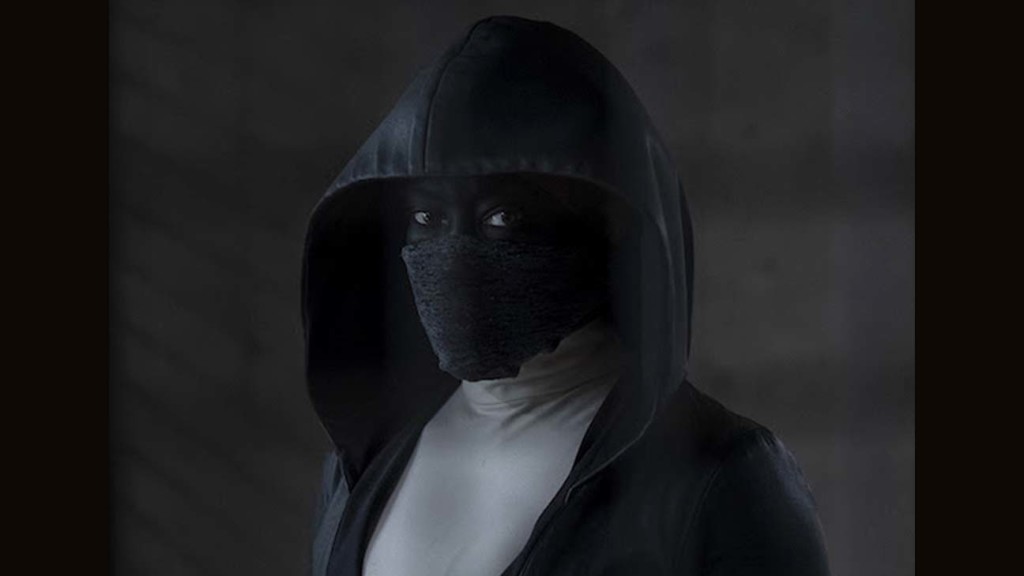 For a network that put the skids on its alternate history “Confederate” after uproar on racial insensitivity, HBO begins one of its most anticipated new series amid the single worst incident of racial violence in American history.
For a network that put the skids on its alternate history “Confederate” after uproar on racial insensitivity, HBO begins one of its most anticipated new series amid the single worst incident of racial violence in American history.
Damon Lindelof’s adaptation of the revered graphic novel “Watchmen” (HBO, 10 p.m.) begins tonight with a harrowing replication of the 1921 attack on a Tulsa neighborhood, which killed up to 300 African Americans.
It skips ahead, then, past the alternate history Alan Moore and Dave Gibbons devised in their revered 1985 comic, to a modern day Tulsa that seems to have been given over to African Americans for reparations, but it is riddled by murderous white nationalists in the mask of the Watchmen.
Comic creator Moore has long opposed any adaptations of his work, including the 2009 movie, and a couple of comic spinoffs. But Lindelof, the co-creator of “Lost” and “The Leftovers,” says it’s in the rebellious spirit of Moore that he forges ahead anyway.
Regina King, also of “The Leftovers,” but more recently an Oscar-winner for “If Beale Street Could Talk,” stars as a kind of undercover detective in the contemporary Tulsa Police Department, where Don Johnson is chief. Jeremy Irons, Jean Smart, Louis Gossett Jr. and Tim Blake Nelson are also in the cast.
But a lot of characters in the extravagant adaptation are in masks, where Lindelof has devised a world where that builds on the original fantasy of alt-history, where Vietnam was won, Watergate never came to light, Richard Nixon was elected to multiple terms and the biggest problem was a growing nuclear Cold War.
Lindelof told reporters at the TV Critics Association summer press tour in Beverly Hills that when it came to setting the action in the modern age, he had to reflect today’s main concerns.
“What, in 2019, is the equivalent of the nuclear standoff between the Russians and the United States?” he said. “And it just felt like it was undeniably race and policing in America. And so that idea started to graft itself into the Watchmen universe.”
Lindelof says he only first learned about the 1921 Tulsa burning after reading Ta-Nehisi Coates’ 2015 “The Case for Reparations” and did some subsequent research on what was also called the Greenwood Massacre.
Even so, at a time when race is key component of presidential campaigning, he said the issued “needed to be presented in a responsible way,” even if the series reflects a fictional alternative history of a not-quite-known present.
“One of the amazing things to me about the original ‘Watchmen’ is you don’t know where what is actual history and what is alt history, and things start to kind of get blended in the middle,” Lindelof says. “It is definitely not supposed to be a world that you recognize. We’re using alternate history, science fiction, popular fiction to Trojan horse themes that are prevalent in the real world in a fictional one.”
So for one thing, this is a world without an internet, Lindelof says. “People do not have smartphones, even though it’s set in 2019. The Redford Administration saw the writing on the wall and stepped in and made sure we could not troll each other incessantly.”
Wait – the Redford administration?
“Robert Redford is the president of the United States and has been the president in the world of the show, since the early ’90s because they’ve abolished term limits,” Lindelof says. It’s a turn hinted in the original comic, though the retired actor himself is not in the show (or at least the first few episodes).
This alternate American history takes off from the original “Watchmen” when Nixon was still president in 1985, but in this one, it’s understood that he was reelected in ’88, died in office and though Vice President Gerald Ford takes office, he’s defeated in 1992 by Redford.
“One of the things that we’re interested in exploring is what would happen if a very well-intentioned white man, a liberal white man was president for way too long?” Lindelof says. “We’re now dropping the audience into what the unintended consequences of that intentionality are.”
That’s the world of brutal racial uprisings and roving bands of white nationalists — a premium cable powder keg in a sharply divided America. But, Lindelof says, that fiction is a reflection of reality.
“Personally speaking, as a white man, the idea that systemically our country would ever come to a place where there wasn’t an incredible amount of push back and anger and vitriol about balancing the power scale between people of color and white people would be ridiculous and nobody would ever swallow that,” he says.
But what has always been a trait of “Watchmen” is how it steps away from comic book conventions of bad guys vs. bad guys, or even who represents which camp. Instead, Lindeolf says, “It is an examination of institutions and culture and politics and the things that inform our society, and that’s the rich mix that makes the show the show.”
“There are no easy answers,” he says. “There are no grandiose solutions. In a traditional superhero movie, the bad guys are fighting aliens and when they beat the aliens the aliens go back to their planet and everybody wins. There’s no defeating white supremacy. It’s not going anywhere. But it felt like it was pretty formidable foe.”